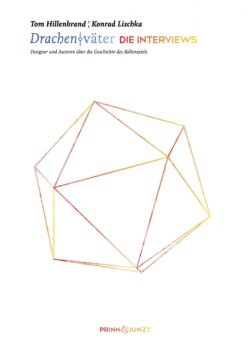Читать книгу Drachenväter: Die Interviews - Konrad Lischka - Страница 37
На сайте Литреса книга снята с продажи.
After TSR’s end (...) I mean after D&D got sold to Wizards of the Coast, there was this explosion of products because of the open gaming license. In hindsight, what do you think of it? A lot of people say now, in hindsight of course, that there were too many products and too many bad products. That impacted on the overall quality.
ОглавлениеThe gold rush was inevitable. Everyone thought: ‚My stuff is going to be the best. I have an opportunity to tap into this huge market of „Dungeons & Dragons” players. Of course I'm going for it.’ In hindsight, I don't think those people were necessarily just trying to cash in. Some of them sincerely thought: ‚I can do better than TSR's doing’ or ‚I have something new to bring to the table.’ A lot of them were perhaps overly optimistic about their abilities. There was a lot of junk. In every gold rush there's a bunch of stuff that people try, and it's an experiment, and it does or doesn't work.
It was foolish for people to think that everything under the open gaming license was going to be a big hit and make gamers happy. There was a glut and, then, there was a crush. The companies that had done good work generally survived the crush and continued to do interesting work for the open game license.
There were a lot of awesome third party products. I really liked the Necromancer Games, the Scarred Lands from White Wolf, a lot of great stuff. It tended to be from companies [...] already into what they were doing, like Scarred Lands. White Wolf already knew how to do role playing, and their bread and butter was Vampire. Scratch a Vampire player: Half the time, underneath [you'll] find a D&D player.
[laughter]
